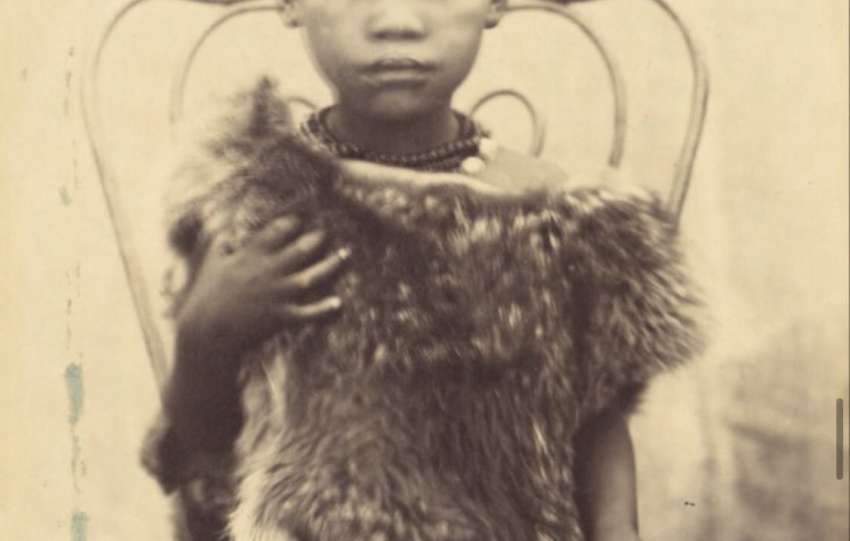Situated within the Ika region west of the River Niger, Delta state, Abavo people whose history have long been shrouded in conflicting narratives and limited historical documentation. Many colonial reports and local oral traditions have offered contradictory claims for decades. Some claimed to come from the ancient Benin Kingdom, others tracing the lineage of Abavo to the heart of Igbo civilisation, particularly the kingdom of Nri in present-day Anambra State, Nigeria. These confusions started due to a lack of written records and proper oral documentation, or a disruption that might have occurred during the British colonisation.

Lack of Historical Documentation and the Colonial Legacy
Abavo, like much of Ika, suffers from a critical absence of archaeological research and early written records from anthropologists and historians. Despite how rich their culture is, professional historians and anthropologists have largely ignored Abavo in favour of more centralised precolonial states. And this is why most of the existing historical narratives are derived mostly from colonial intelligence reports. The imperial agenda of the British administration often shapes these records. These reports frequently prioritised Benin-centric accounts to legitimise the colonial structure. They cast many decentralised Igbo communities like Abavo as satellite states of Benin or conquered groups, which they are not.
Avo and the Foundations of Abavo

In “The Ibo and Ibibio-speaking People of South-Eastern Nigeria by Daryll Forde & G. I. Jones,” it was recorded that the founder of Abavo was a figure named Avo, who bore the Igbo royal or priestly title Eze, which indicates an Igbo socio-political structure. Avo’s descendants, Udomi, Igbogili, and Azuowa, made up the main divisions of the clan. While some versions of this account attempt to link Avo to Benin, the use of Igbo titles and the Igbo governance system of the clan suggest an indigenous Igbo origin rather than an offshoot of Edo formation.
The same intelligence reports note that Osaigbobu, a later Obi of Abavo, was the father of Jegbefume in the hereditary ruling line. While some have interpreted “Obi” as an Edo borrowing, the title has no meaning in Edoid languages, but has meaning in Igbo languages. It is also widely used among Eastern and Western Igbo communities, particularly in Nri-influenced areas, predating widespread Benin imperial reach.

Linguistic and Cultural Evidence of Igbo Origin
A renowned anthropologist, Northcote Thomas, observed that Abavo retained “proto-Igbo archaic features in distinct nasalisation and incipient aspiration,” phonological traits that strongly indicate early Igbo linguistic roots (Thomas, as cited in Ogedengbe, 2004). These features are neither characteristic of Edoid languages nor reflective of Benin’s cultural influence. Such linguistic evidence adds weight to the assertion that Abavo is an indigenous Igbo community with only superficial Edo influences from centuries of interregional interaction.
Nri Influence and the Broader Igbo Migrations
A more robust historical framework emerges from the work of Prof. M.A. Onwuejeogwu, who documented the extensive spread of Nri lineages across Western Igboland between the 12th and 18th centuries CE. Onwuejeogwu (1981) affirms that Abavo was founded during movements from the core Nri settlements, including Ute-Okpu and Issele-Uku, into the Ika interior. He adds that such expansions occurred before the military rise of Benin, suggesting that Abavo’s roots lie firmly in pre-Benin Igbo civilisation.
Many other scholars support this view, like Nwachukwu Ogedengbe in 2004, who cites Abavo, Ogwashi-Uku, Okpanam, Owa, and Ibusa as communities in the Ika and Aniocha areas with traditions of Nri origin. Historian Isichie, in 1976, also further hypothesised that Igbo-speaking groups originally inhabited the current Ika region. They only later encountered Benin elements through trade or military engagement.
While some colonial-era and postcolonial writers suggest that Benin soldiers founded or named Abavo and other Ika communities during their imperial expansion, this interpretation lacks substantial evidence from linguistics, culture, kingship and family system. T.E. Oseme argues that even if military conquest occurred, it did not erase the indigenous identity of the people, as they continued to speak their Igbo dialects and maintain customs consistent with their eastern kin. However, small Edo influence has been layered atop a much older Igbo sociocultural foundation.
With linguistic, cultural, and historical evidence, it is clear that Abavo’s origins are purely Igbo. The claims of Edo origin are better understood as reflections of colonialism and the aftermath of the Biafran War, not foundational truths. Abavo is a Western Igbo community rooted in ancient traditions that predate Benin’s imperial influence by focusing on perspectives from oral traditions and scholarly work.
References:
- Isichie, E. (1976). A history of the Igbo people. London: Macmillan.
- Nigeria Intelligence Report on Abavo Clan. (n.d.). [Unpublished colonial intelligence record].
- Ogedengbe, N. (2004). Ika cultural history: The Igbo connection and the Benin factor. Ika Historical Society.
- Onwuejeogwu, M. A. (1981). An Igbo civilisation: Nri Kingdom and hegemony. London: Ethnographica.
- Thomas, N. W. (as cited in Ogedengbe, 2004). Colonial anthropological reports on the Ika and Anioma areas of Western Igboland.
- Forde, D., & Jones, G. I. (1950). The Ibo and Ibibio-speaking peoples of south-eastern Nigeria. International African Institute.




1 Comment
Isioma
Abavo is not confused. And the road which our people followed from benin to her current place is documented orally and traditionally. We aren’t igbos and never migrated from anambra. Pls do your researchs, you aren’t better than our chiefs and you aren’t from Abavo either